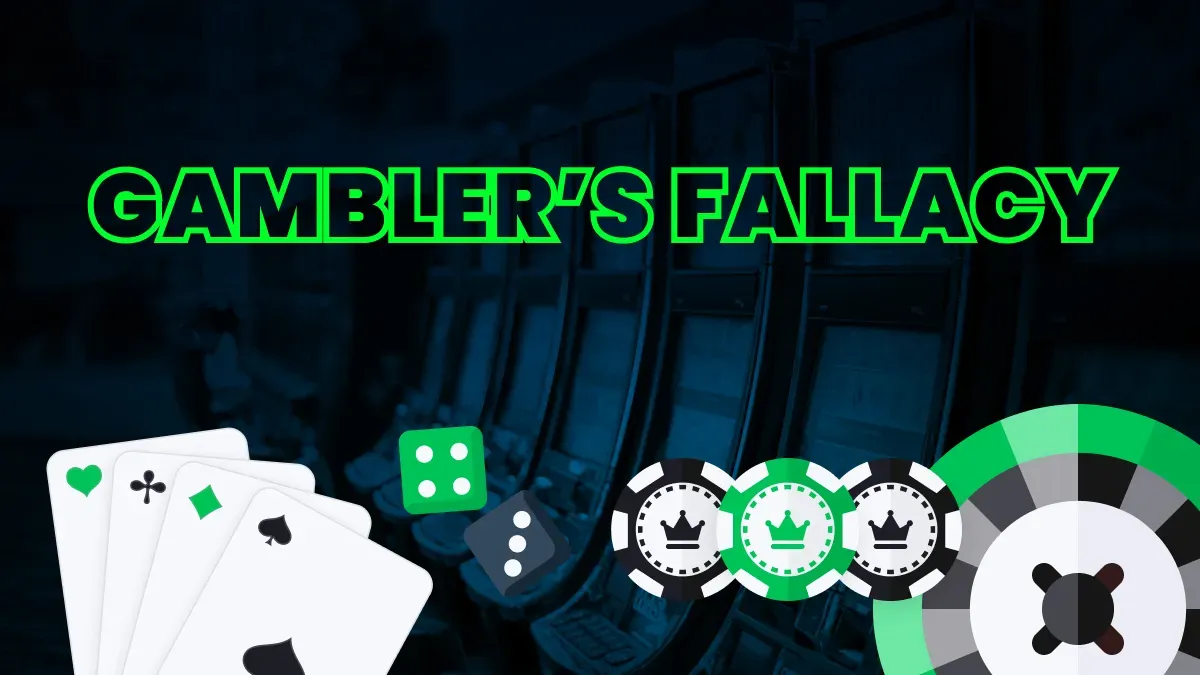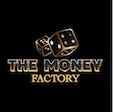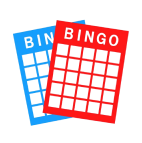What is the Gambler's Fallacy?

So, you're all dressed up to go to the casino, or maybe you're playing online at home. You're sure to remember to carry your dad's good luck charm or his coin because he swore it helped him win. Or maybe you keep making the same bet or betting on the same number on the roulette wheel or dice roll. After all, it worked before?
Maybe you play the same lotto numbers week in and week out because the law of averages, at least in your mind, says that these numbers must hit at some point. Or, because Steph Curry made five or more three-pointers in most of the games in January, that somehow this previous event is a sure bet.
If this sounds like you, you might have a case of gambler's fallacy or, depending on where you play, the Monte Carlo fallacy. The essence of the gambler's fallacy is the erroneous belief that known or unknown past events based purely on random sequences is a sound strategy. But unfortunately, as the chance process unfolded, gamblers lost millions. Before you set off to the casino floor (or virtual casino floor), take a moment to understand how a gambler's fallacy can cause unhealthy behavioral decision-making.
What is a Fallacy?
Fallacy, in its essence, is an obvious error, flaw, or mistaken belief that a future event will pan out a certain way. In most cases, future events, or an outcome like the Super Bowl, occur as a random event.
Those people with fallacies are unable to understand or grasp that random events, more than not, determine the outcome or empirical data and tend to use facts or rational counterarguments to support their position or, rather, disposition. As a result of analyzing and accepting truth to begin the self-correcting process, they continue making horrible decisions based on past events, with the opposite outcome happening more often than not.
What is the Gambler's Fallacy?
The gambler's fallacy is a special fallacy that follows how some players have the misguided notion that a past event, such as a big win or a winning streak, determines current or subsequent events. The reality is that past and present gambling are two events that stand alone. Some gamblers rely on superstitions like coin tosses to determine a certain bet, for example, gambling on a roulette number or color. However, the random process and random number generators determine wins and losses, not coin flips.
While games like roulette, with even money bets, like which color or number the white ball lands on, have an equal probability of panning out or not. For sports betting, many gamblers base the coin flip to make their moneyline bets. For example, the last two times, the coin flip landed on heads, and you bet on the Nuggets to win the moneyline bet, and the wagers panned out. So, you flip the coin, and once again, it lands on heads, so you bet on the Nuggets to win straight up, but this time, they lost.
The truth is that whether the Nuggets win or lose are two independent events. Likewise, the flip came up tails, and you bet on the opposing team to beat the Nuggets. Only the Nuggets won that time. This is also a prime example of a gambler's fallacy.
Sometimes, when you go to a casino or play at home, for that matter, things haven't gone your way with a particular slot game. A rational player would know it wasn't their day and leave to avoid losing further. But, under the gambler's fallacy syndrome, the incorrect notion becomes that they've lost so much and several times in a row that the next one has to hit. There's always the next one that will put you back on the winning path, when, in fact, each slot win and loss is a random event.
But you don't have to be a gambler to be inflicted with a fallacy. Fallacies can be as lighthearted as believing that despite having three sons, it's more probable that the subsequent births will also be boys. But, even though you've had sons three times in a row, each birth, boy or girl, is a random event.
Why Does the Gambler's Fallacy Occur?
In a philosophical essay about gambling disorders, you might find it pointing out that people erroneously rely on a feeling or a specific event to determine the dice rolls, the next flip, and the other hand from a past experience or a sheer gut feeling. Win or lose, independent events determine the player's outcome, even if the person rolling has the hot hand.
Gambler's fallacy usually also occurs from other's experiences. For example, using the null hypothesis understanding, a family member or a close friend swears that a lucky coin or coin flips helps guide them in their decision to make a bet.
Also, there's a double gambler's fallacy. Because coin flips have no bearing on the outcome since the more representative sequence of each flip contains a 50% chance that it will be either heads or tails with a fair coin toss.
The other fallacy is when people expect to have the same future occurrences. Even though gambling results are a fair process, trying to tell those with a fallacy with logic and reason that their decision making is flawed will usually be rejected, despite being based on scientific evidence and basic reason.
Furthermore, they fixate and take mental shortcuts and hope that what they want is the way. This phenomenon is the basis of the representativeness heuristic, where the mind shuts out what it doesn't want to hear or see.
The Law of Small Numbers
Despite grasping and understanding that each gambling event occurs randomly, the law of small numbers is a gambler's fallacy where decision making hinges on small samples of what other players do or have done; and that it will carry out the same results for them. Someone who thinks this way goes so far as to believe that if the coin flip doesn't hit tails at the rate they like, it isn't a fair coin flip.
For example, with roulette, there was a time when you had a hot hand betting on black or a number like nine where the white ball fell. Eventually, the winning streak ends. But you still gamble on black or nine while ignoring the cold, hard truth that it was a random event. This gambler's fallacy of only focusing on pleasant short sequences is the classic hot-hand fallacy. In other words, the fallacy or belief is that this is a solid foundation for making gambling decisions.
The Inverse Gambler's Fallacy
The inverse gambler's fallacy, or the retrospective gambler's fallacy, ironically doesn't give any weight to what happened in the past to influence a future one. Yet, this polar opposite of gambler's fallacy still has many falling prey. Even though they might have bet big and hit playing blackjack with a hand of fifteen and lost, they believe that it won't happen again. For example, this event would shape would-be-known subsequent events by throwing odds and basic probabilities out the window.
Read more: New Online Casinos
The Monte Carlo Casino Incident
Perhaps the most famous example and commonly used one to illustrate the concept of gambler's fallacy is the 1913 Monte Carlo fallacy. We know that there are players who have a lucky number. Still, when in Monaco at the Monte Carlo Casino, a certain roulette wheel landed on a black number 26 times in a row. Thinking that this was too good to be true and that red just had to hit, the players made ridiculously large wagers banking on red.
Needless to say, after this gambler's fallacy occurred, many players lost it all and nearly the kitchen sink going on what they thought was the law of averages. Roulette calls for strategies like the Martingale to double your wagers after each loss, so you can easily see why things went off the rails here. In other words, what goes up must come down.
How to Avoid the Gambler's Fallacy
The foundation and first rule for not falling prey to gambler's fallacy is to fully understand and overstand that the data for statistical independence clearly shows that each win, or for a simpler analogy, that each fair coin flip yields random results. With this understanding, it's not lucky socks, a lucky charm, a lucky coin, or a specific seat if you play bingo that influences wins. It's purely the luck of the draw.
Slot machines and certain casino games use a random number generator to ensure honest and random results. Trust and know that these results are audited and checked by reputable sources. Before sitting down to play your favorite game, understand the odds for each bet. A typical gambler's fallacy is the erroneous belief that your particular skills or ritual helps you win. To increase your odds of winning, you might want to stick to even money bets that have 1:1 payout ratios.
If you get on a roll, please understand it's not because of something you specifically did. Better yet, if you were on a roll in the past, you don't need to stick with it. Even if you feel like you can't lose, understand that feeling doesn't trump logic or random play.
Signs of Problem Gambling
Always believing that the big win or your luck is bound to change with the next spin or playing hand is the first step to compulsive gambling. Another way to pinpoint if you're slipping into problem gambling is the inability to stop playing once you've gone through your budget. This and the signs listed below are common indicators that your gambling is out of control.
- An obsession with gambling or playing casino games
- Failing to reduce or stop gambling entirely
- Desperate to make up for the losses, better known as chasing with heavier bets
- Going into debt to continue gambling
- Playing longer and well past your normal playing time
Responsible Gambling Resources
If you play online, you can use the responsible gaming section to set playing and loss limit sessions. Once you set these settings and reach the limit, you are through for the day. Also, with the responsible gaming section, you can set cool-off periods, where you can block yourself from making real money wagers for several days, weeks, or even a month.
Whether you play in person or online, the rule of thumb is to spend what you safely lose without causing hardship. If you are new, start with a small budget and make minimum bets so you can help preserve your budget. And when your budget or playing time is up, don't question it. Please stop playing. If you are gambling in person, you might consider not bringing credit cards. That way, when the cash runs out, that's the end of play, at least for that day.
Also, listen to others who can see that you are not making sound decisions. The mistaken belief by those struggling with gambling is that they can stop any time. Don't got into debt or take markers from loan sharks or casino loan officers. These debt markers must be paid and can lead to disaster.
In the states that support online casinos, you can place yourself on the state's self-exclusion list. The consequence is you won't be able to gamble in any of the casinos or online in that state. However, if that still isn't enough, hopefully, you can get the help you need from these prominent national organizations.
- National Council on Problem Gambling: Get help today by dialing 1-800-GAMBLER
- Gambler's Anonymous: Get your life back in order by visiting their website: https://www.gamblersanonymous.org/ga/
- Gam-Anon: Start your recovery journey by visiting their website: https://www.gamblersanonymous.org/ga/content/gam-anon-help-family-friends
Action Network Responsible Gaming Content
For more information on responsible gambling, we've compiled some content about how to set limits, educate yourself, manage your bankroll, and more.
- How to Set Limits on Your Sportsbook Accounts
- What is Problem Gambling and What Can You do to Avoid it?
- The Importance of Odds Shopping and Ignoring Sportsbook Loyalty
- Responsible Gaming Tips
- How to Ban Yourself Through Self-Exclusion
- How to Not Bet Every Longshot You See on Twitter
- Responsible Gaming to Make or Break Sports Betting in United States
- New Campaign Aims to Educate U.S. Bettors About Risk of Offshore Sports Betting
- Mistakes Sports Bettors Should Avoid
- How to Manage Your Sports Betting Bankroll
- What is a Bonus bet? And What Are The variations behind it?
- What is a Rollover Requirement?
- Tips For Dealing With Tilt








































